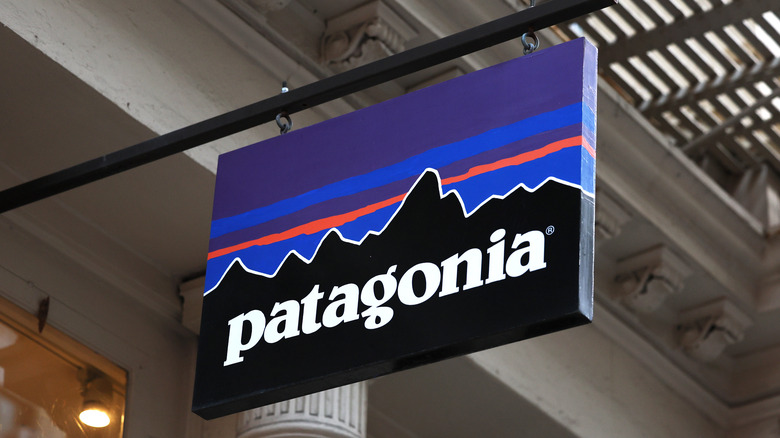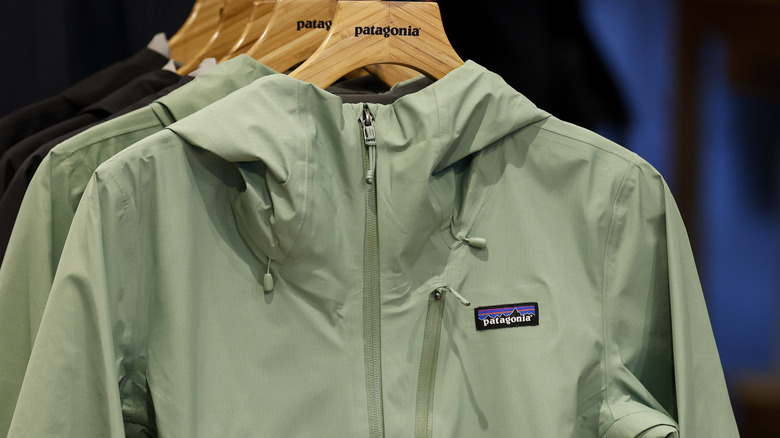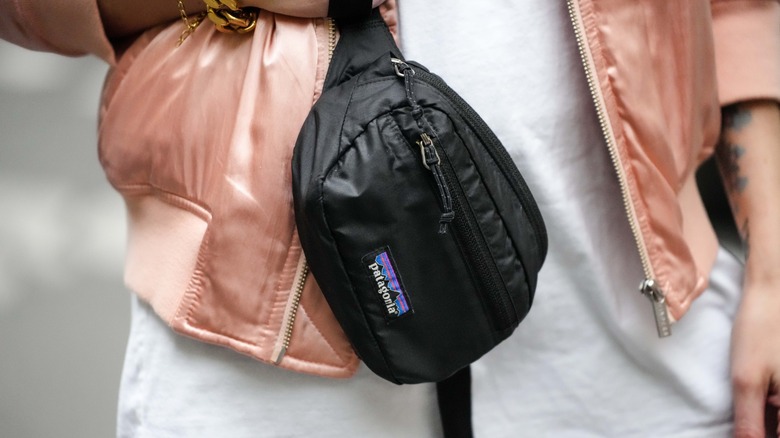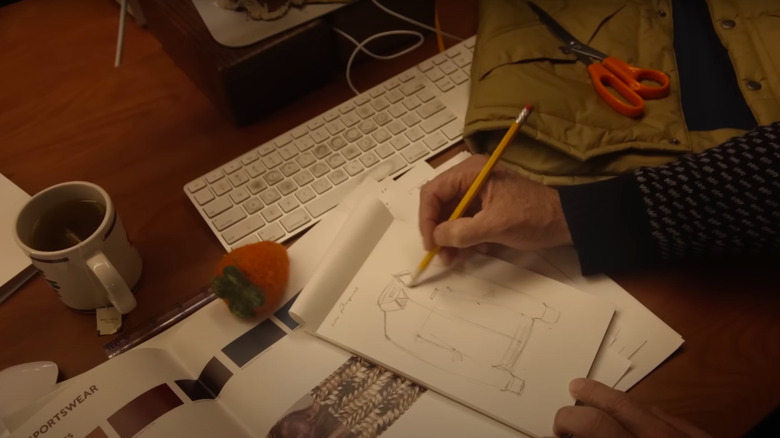The Untold Truth Of Patagonia
In the world of outdoor adventure and eco-conscious exploration, Patagonia stands as an imposing peak, its presence dominating the landscape of sustainable outdoor gear and clothing. Recognized as a trailblazer and a paragon of environmental stewardship, Patagonia's commitment to responsible practices is as steadfast as the towering peaks that inspire its name. However, the narrative of Patagonia's green ethos and premium products only scratches the surface of this iconic brand's rich tapestry.
From the company's humble beginnings to its current status as a global force for positive change, there are unearthed stories that showcase the brand's unwavering dedication to its deep respect for the planet. Join us as we delve into the heart of Patagonia's philosophy, unveiling the often-overlooked aspects that contribute to the brand's significance and why it deserves recognition beyond its status as an exceptional provider of outdoor gear. This is the untold truth of Patagonia.
Yvon Chouinard's early experiences informed his sustainability principles
The legacy of Yvon Chouinard extends far beyond his title as the founder of Patagonia; it is a tale woven with the threads of personal conviction and outdoor exploration. Yvon Chouinard's journey into the realm of sustainability finds its roots in the rugged landscapes he traversed during his early rock climbing adventures. A self-proclaimed "dirtbag" climber (via American Alpine Club), Chouinard faced the raw beauty of nature and witnessed firsthand the impact of human activity on the environment. This intimate connection with the outdoors became the crucible in which Patagonia's eco-friendly ethos was forged.
Chouinard's transformative experiences catalyzed a profound commitment to environmental responsibility, leading him to pioneer innovative solutions within the outdoor industry. Intriguingly, it was his dissatisfaction with the non-sustainability of pitons available for climbing that prompted him to create his own, sparking the birth of Chouinard Climbing Equipment, which later evolved into Patagonia.
Patagonia employs unconventional hiring practices
Unlike traditional corporations, Patagonia places a premium on passion and shared values rather than merely focusing on a candidate's professional qualifications. The hiring process at Patagonia is an exploration of an individual's alignment with the brand's ethos, emphasizing a dedication to environmental stewardship and social responsibility.
Patagonia prioritizes candidates who showcase a genuine connection to the outdoors and a personal commitment to sustainability. This unconventional approach stems from the belief that a workforce driven by shared values is more likely to collaborate effectively in advancing the company's mission.
Furthermore, Patagonia's commitment to work-life balance and flexibility adds another layer to its unique hiring practices. Recognizing that individuals are not solely defined by their professional roles, the company places importance on fostering a healthy equilibrium between personal and work life. This philosophy attracts individuals who are not only skilled in their respective fields but also bring a holistic perspective to the workplace. As a testament to this, Patagonia's unconventionality in hiring extends to its willingness to invest in the growth and development of its employees. The company provides opportunities for learning, personal development, and even encourages employees to take sabbaticals for environmental activism or personal pursuits, reinforcing the belief that a fulfilled and impassioned workforce is essential for achieving meaningful change.
The Don't Buy This Jacket campaign encourages mindfulness
The "Don't Buy This Jacket" campaign stands as a groundbreaking chapter in Patagonia's history, defying the norms of conventional marketing with a full-page advertisement that carried a stark and provocative message: "Don't Buy This Jacket." The featured jacket, a bestseller for the company, served as a symbolic focal point for the larger issue of excessive consumerism. The advertisement, adorned with the stark plea, delved into the environmental cost of producing the popular fleece jacket, revealing the intricate web of resources, energy, and waste involved in its creation. By urging consumers to reconsider their purchase, Patagonia aimed to ignite a collective consciousness about the impact of consumer choices on the planet.
The campaign was a masterstroke in transparency and accountability, illustrating Patagonia's dedication to walking the talk of sustainability. Rather than concealing the ecological footprint of its products, the company laid it bare for all to see, a rare move in an industry often veiled in glossy marketing campaigns. This act of radical transparency not only positioned Patagonia as an industry leader in ethical business practices but also set a precedent for companies willing to confront the environmental consequences of their products.
Beyond its immediate impact, the "Don't Buy This Jacket" campaign sparked a broader conversation about the responsibility of both businesses and consumers in fostering a more sustainable future. It challenged the pervasive culture of disposability and mindless consumption, encouraging individuals to reflect on the true necessity of their purchases and consider the long-term consequences of their choices.
Worn Wear reinforces the three Rs
Patagonia's commitment to sustainability extends beyond the realm of producing new gear. Far more than a mere second-hand market, Worn Wear is a transformative initiative that redefines the life cycle of outdoor gear, emphasizing durability, repair, and the timeless concept of "reduce, reuse, recycle."
Worn Wear represents a paradigm shift in how people perceive and engage with outdoor gear. Rather than succumbing to the pressures of fast fashion or the disposable culture prevalent in the industry, Patagonia encourages customers to see their gear as lasting companions on their adventures. The program facilitates the resale and purchase of gently used Patagonia items, creating a marketplace where preloved gear finds new life and users can take pride in contributing to a more sustainable model of consumption.
Moreover, Worn Wear is a testament to Patagonia's commitment to reducing waste and minimizing its ecological footprint. By promoting the repair and reuse of outdoor clothing and equipment, the brand is actively challenging the notion that consumer goods have a predetermined lifespan. Through initiatives like free repairs offered in select stores and an online platform dedicated to buying and selling used Patagonia gear, the company is fostering a community that values quality, longevity, and environmental stewardship among consumers. In doing so, Patagonia not only champions the cause of reducing waste but also sets a powerful example for the industry, demonstrating that a commitment to long-term sustainability is not only feasible but essential for a harmonious relationship between commerce and the environment.
Patagonia's environmental activism moves beyond gear
While the brand has undoubtedly earned acclaim for its innovative products, its commitment to environmental stewardship transcends the tangible items it produces. Patagonia has evolved into a powerful force for positive change, utilizing its influential platform to champion environmental causes and advocate for a sustainable future.
Beyond crafting high-performance gear, Patagonia has harnessed its brand influence to raise awareness about critical environmental issues. The company actively engages in grassroots movements, aligning itself with initiatives that seek to address climate change, protect biodiversity, and preserve natural ecosystems. Patagonia's involvement in these campaigns is not merely symbolic; the brand commits significant resources to amplify the voices of environmental activists and organizations, recognizing the urgency of collective action.
One notable example of Patagonia's environmental activism is its robust support for public lands. The brand has consistently fought against threats to these vital spaces, utilizing its resources to defend them from commercial exploitation and advocating for policies that prioritize conservation over short-term economic gains. This proactive stance has positioned Patagonia as a vocal advocate for the protection of public lands, inspiring a sense of responsibility and activism among its customers and the wider community.
The Let My People Go Surfing philosophy redefines business ethics
The "Let My People Go Surfing" philosophy encapsulates the unconventional ethos that propelled Yvon Chouinard to pen a manifesto that transcends the traditional boundaries of business literature. The book, titled the same, not only chronicles the history of Patagonia but serves as a foundational text that unpacks the philosophy underpinning the company's distinctive work culture.
At its core, the philosophy emphasizes a holistic approach to work, embracing the idea that a balanced life leads to a more fulfilled and productive workforce. Chouinard himself, a dedicated outdoorsman, understood the rejuvenating power of nature and sought to create an environment at Patagonia where employees could find inspiration and recharge, whether it be through surfing, climbing, or simply connecting with the natural world. The book explores how Patagonia has implemented a results-oriented approach to work, valuing output over hours clocked. This unconventional perspective promotes autonomy and trust, empowering employees to manage their schedules in a way that best suits their individual lifestyles.
Furthermore, "Let My People Go Surfing" delves into the environmental responsibility woven into the fabric of Patagonia's operations. Chouinard details the challenges and triumphs of aligning business practices with environmental ethics, emphasizing that companies can be successful while remaining steadfast in their commitment to sustainability. As a result, "Let My People Go Surfing" remains a seminal work, a touchstone for those seeking insight into Patagonia's unique approach to business and work.
The Tin Shed marks Patagonia's humble beginnings
While many might be familiar with the Patagonia HQ's nickname as the 'Tin Shed,' few know its origins and significance. Nestled amidst the rugged landscapes of Ventura, California, the nickname Tin Shed encapsulates the essence of a place that defies corporate conventions. The moniker traces its roots to the humble beginnings of Patagonia, when the company operated out of a tin-clad warehouse—a space that would become synonymous with the brand's ethos and its commitment to a unique corporate culture.
This unpretentious structure served as the incubator for Patagonia's pioneering spirit, embodying the same spirit of resilience and resourcefulness that defined the brand's early years. Inside the Tin Shed, the walls echoed with the passionate discussions, bold ideas, and collaborative efforts that shaped the company's identity. It was a space where the unconventional thrived, where surfboards leaned against desks, and climbing gear shared space with design sketches — a tangible representation of the interplay between work and play, a hallmark of Patagonia's approach to business.
Patagonia's legal action mirrors their dedication to environmental protection
Beyond crafting high-quality outdoor gear, Patagonia has become known for its proactive legal stance against those who infringe on its environmental copyrights, turning legal battles into a potent tool for reinforcing its mission and values. One notable legal skirmish involved Patagonia's aggressive response to imitations of its iconic "P-6" logo (via Fordham). The company, recognizing the importance of this emblem as a symbol of its commitment to fair labor practices and environmental responsibility, took legal action against entities attempting to replicate or misuse the logo.
Another intriguing legal chapter unfolded when Patagonia took on the Trump administration. According to The New York Times, the brand filed a lawsuit challenging the decision to reduce the size of Bears Ears and Grand Staircase-Escalante National Monuments in Utah. Patagonia's legal action underscored its commitment to the protection of public lands and the preservation of natural spaces, turning the courtroom into a battleground for environmental advocacy.
The legal waves also surged when Patagonia took action against the Trump administration's attempt to roll back regulations on industrial pollution. By filing lawsuits against these regulatory rollbacks, Patagonia showcased its unwillingness to compromise on matters integral to its mission, asserting that the health of the planet takes precedence over short-term economic interests. These legal battles transcended the courtroom, resonating with environmentally conscious consumers and reinforcing the notion that businesses can play a pivotal role in challenging environmental injustices.
Patagonia has a hidden artistic side
Beneath the surface of its technical apparel and equipment lies a lesser-known, yet profoundly impactful, connection to the art world. Art plays a pivotal role in Patagonia's mission to inspire change. The brand believes in the transformative power of creative expression to provoke thought, evoke emotions, and spur individuals to action. By infusing art into its narrative, Patagonia aims to cultivate a broader cultural shift, encouraging a deeper connection between people and the environment. Patagonia has ingeniously integrated artistic collaborations, installations, and expressions into its ethos, using creativity as a potent catalyst for change and inspiration.
One notable aspect of Patagonia's artistic endeavors is its strategic collaborations with artists who share a common commitment to environmentalism and social activism. Through these partnerships, Patagonia has transformed its products into canvases, creating limited-edition collections adorned with thought-provoking art that serves as a visual medium for advocacy. From clothing adorned with powerful graphics to accessories featuring intricate designs, these collaborations not only elevate the aesthetic appeal of Patagonia's offerings but also amplify the brand's message of environmental responsibility.
Art installations have become another canvas for Patagonia's creative expression. These installations often pop up in unexpected places, engaging the public in a dialogue about the interconnectedness of art, activism, and the natural world. Through these exhibitions, Patagonia utilizes art as a powerful tool for storytelling, providing a visual and emotional entry point for individuals to connect with the urgent challenges facing our planet.
The company's nickname is well-earned
While undeniably high-quality, Patagonia's products often come with a price tag that has affectionately earned the moniker "Patagucci." This playful term, blending Patagonia with the luxury fashion brand Gucci, alludes to the perception of Patagonia as a premium and somewhat aspirational label within the outdoor industry. However, the reasons behind the seemingly steep prices are rooted in a unique philosophy that aligns with the brand's mission of sustainability, durability, and ethical practices.
One key factor contributing to the "Patagucci" phenomenon is Patagonia's commitment to using environmentally friendly materials. The brand places a premium on sourcing sustainable fabrics and employing eco-conscious production processes, even if it means higher upfront costs. From recycled polyester to organic cotton, the materials utilized in Patagonia products are carefully selected to minimize environmental impact, reflecting the brand's dedication to responsible manufacturing practices.
Importantly, Patagonia's pricing strategy also reflects a commitment to transparency. By providing detailed information about the environmental and social impact of its products, the brand invites customers to make informed choices. This level of openness in the supply chain contributes to the perceived value of Patagonia items, as consumers increasingly prioritize brands that align with their values.Additionally, the "Patagucci" pricing model aligns with Patagonia's fair labor practices. The brand prioritizes ethical manufacturing and ensures that workers throughout its supply chain are treated with dignity and paid fair wages. This commitment to social responsibility contributes to the overall cost of production, as Patagonia refuses to compromise on the well-being of the people involved in creating its products.
Patagonia chases the highest environmental standards
At the core of Patagonia's environmental ethos is a relentless pursuit of the rarest and highest standards. Unlike many companies that might settle for compliance with minimum environmental regulations, Patagonia sets its sights on the most stringent and rigorous benchmarks available. This ambitious approach is driven by a belief that true sustainability requires constant innovation and a refusal to accept the status quo. Patagonia doesn't merely aim to be environmentally friendly; it aspires to redefine what is possible within the realms of sustainable business practices.
One lesser-known aspect of Patagonia's commitment is its rigorous evaluation of its entire supply chain. The brand scrutinizes every step of the production process, from raw material sourcing to manufacturing and distribution, ensuring that each stage adheres to the highest environmental standards. This meticulous examination extends beyond the company's direct operations, encompassing its suppliers and partners, creating a comprehensive ecosystem of sustainability. The brand openly shares information about the environmental impact of its products, encouraging accountability and empowering consumers to make informed choices. By lifting the veil on its operations, Patagonia not only sets an example for transparency in the industry but also fosters a culture of openness that challenges others to follow suit.
Moreover, Patagonia actively engages in research and development to discover and implement cutting-edge technologies and materials that push the boundaries of environmental sustainability. This commitment to innovation extends beyond its own needs, as Patagonia shares its findings and solutions with the broader industry, embracing a collaborative approach to advancing environmental standards.
Patagonia's unique ownership structure marks a holistic commitment to our planet
At the heart of Patagonia's unique ownership structure is the concept of a Benefit Corporation, a legal framework that allows companies to pursue not only profit but also social and environmental goals. According to their website, in 2012, Patagonia became one of the first companies in California to formally adopt this structure, signaling its intent to prioritize a broader spectrum of values beyond traditional financial metrics. What distinguishes Patagonia's Benefit Corporation status is its dedication to transparency and accountability. As a Benefit Corporation, Patagonia is legally obligated to consider the impact of its decisions not only on shareholders but also on workers, communities, and the environment. This structure aligns seamlessly with Patagonia's founding principles and ensures that the company's commitment to social and environmental responsibility remains an integral part of its operational DNA, safeguarded against potential dilution as it expands.
An additional layer to Patagonia's ownership structure is its innovative approach to ownership transition. Founder Yvon Chouinard has established the "1% for the Planet" pledge, ensuring that at least one percent of the company's sales go towards environmental causes. Moreover, Chouinard has committed to donate at least 50 percent of his own stake in the company to environmental nonprofits. This approach to ownership transition embeds a philanthropic dimension into the company's growth trajectory, underscoring its commitment to contributing positively to the world even as ownership evolves.
Patagonia's pop culture appearances transcend traditional marketing
From Hollywood blockbusters to the glitzy catwalks of fashion capitals, Patagonia has found its way into unexpected places, firmly establishing itself as more than just a brand for outdoor enthusiasts. The brand strategically utilizes platforms like Instagram, Twitter, and Facebook to curate visually appealing content that transcends traditional marketing.
In cinema, the silver screen has showcased Patagonia gear in various unexpected ways. From action-packed blockbusters like "The Secret Life of Walter Mitty," where Ben Stiller navigates breathtaking landscapes clad in Patagonia attire, to the indie hit "Wild," where Reese Witherspoon treks the Pacific Crest Trail wearing the brand's gear, Patagonia's presence in the film industry goes beyond mere product placement. These unexpected on-screen appearances have turned Patagonia into a symbol of adventure and authenticity, resonating with audiences worldwide.
On runways, where avant-garde aesthetics dictate trends, Patagonia's rugged yet stylish products have found an unexpected spotlight. Fashion designers have incorporated Patagonia fleeces, down jackets, and backpacks into their collections, blurring the lines between technical outdoor gear and urban trends. The brand's unexpected presence in the industry underscores its versatility and enduring appeal in the ever-evolving world of fashion.













